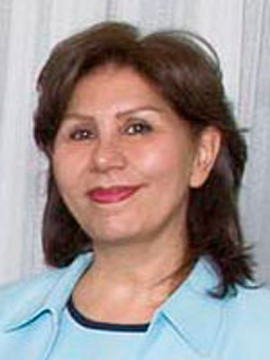In the complex tapestry of human rights, there are often threads that intertwine faith and persecution, justice and injustice. One such salient example is the plight of Mahvash Sabet, a prominent Bahá’í educator in Iran. Her story sheds light not only on the challenges faced by individuals of the Bahá’í Faith in a predominantly Islamic nation but also raises a poignant question: How can the tenets of justice, as espoused by the Bahá’í teachings, be reconciled with the stark reality of persecution?
The Bahá’í Faith, a relatively nascent religion founded in the mid-19th century, emphasizes principles such as the oneness of humanity, justice, and the pursuit of knowledge. Central to its teachings is the idea that prejudices—be they religious, ethnic, or gender-based—are among the greatest impediments to societal progress and harmony. Yet, Mahvash Sabet’s experience starkly illustrates the contradiction between these noble ideals and the actions of state authorities.
In 2008, authorities in Iran sentenced Sabet, along with several other Bahá’í leaders, to twenty years in prison, ostensibly for charges including espionage and propaganda against the Islamic Republic. However, the charges were widely condemned as baseless, designed solely to stifle the voices of a community long subjected to systemic discrimination. What drives a government to imprison individuals solely for their beliefs? This question becomes even more pressing when one considers the degenerate nature of such actions against a backdrop of Bahá’í teachings on unity and justice.
At the core of Bahá’í teachings is the belief that all individuals are entitled to the same human rights and dignity. This principle is articulated eloquently in the writings of Bahá’u’lláh, the founder of the faith, who articulated the importance of equitable treatment and justice. Sabet’s imprisonment is a glaring violation of these rights—a poignant reminder that in many societies, ideology can become an insurmountable barrier to justice.
Moreover, the plight of Mahvash Sabet serves as a catalyst for broader discussions regarding the treatment of minorities. The Bahá’í community in Iran, while comprised of individuals committed to peace and cooperative harmony, has faced systemic oppression, including the denial of civil rights, employment opportunities, and even access to education. Sabet herself was an ardent educator, dedicated to imparting knowledge to youth and promoting intellectual growth. In detaining her, authorities not only silenced her voice but also diminished the educational prospects for countless young Bahá’ís.
This raises the fundamental question: In a world that espouses the values of pluralism and coexistence, how does society confront acts of persecution rooted in ideological discord? This is where the application of Bahá’í principles becomes essential. Advocating for justice and equality requires both individual commitment and communal resilience. Through steadfastness in their beliefs, Bahá’ís around the globe have exemplified how communities can rally for justice, even in the face of seemingly insurmountable adversity.
Furthermore, Sabet’s case underscores the necessity of international awareness and advocacy. Human rights organizations and governments worldwide have a responsibility to highlight and condemn injustices where they occur. The Bahá’í community has engaged in global awareness campaigns, utilizing modern technologies and social media to bring attention to their plight and to advocate for freedom and justice. This collective effort not only seeks to ameliorate the conditions of the Bahá’ís in Iran but also strives to foster a culture of respect for human rights everywhere.
Ironically, the imprisonment of voices like Sabet’s often catalyzes greater awareness and solidarity among diverse groups advocating for justice. Her story is not just a narrative of personal sacrifice but also a testament to the power of resilience. By embodying the principles of the Bahá’í teachings, advocates can turn oppression into a rallying point for collective action that transcends individual faiths or identities.
As we reflect upon the oppressive imprisonment of Mahvash Sabet, it leads us to contemplate not merely the injustice faced by a single individual but the broader implications for human rights and dignity. In a world so vehemently divided, can we not all strive to uphold the principles of justice, equity, and compassion, particularly for those who suffer? This challenge requires a multifaceted approach—aligning actions with principles, fostering dialogue, and standing in solidarity with the marginalized.
In conclusion, Mahvash Sabet’s plight serves as an enduring reminder that the quest for justice remains an imperative that extends beyond religious or cultural boundaries. It calls upon individuals and communities alike to amplify voices that have been silenced, and to advocate for a world where diversity is celebrated rather than vilified. The path forward is laden with challenges, but by embracing the teachings of the Bahá’í Faith, individuals can find a clarion call for justice that reverberates through the ages.
